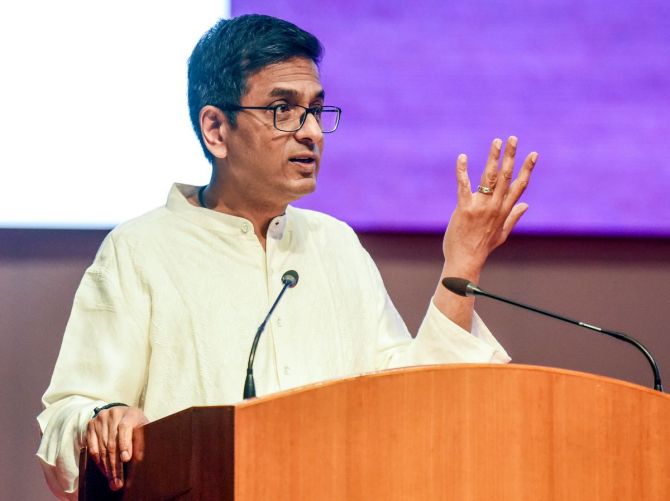Hriday Shah
Chief Justice of India (CJI) DY Chandrachud expressed concern about the lengthy court proceedings that often drive people to settle their cases, even if the settlements are not very beneficial for them. He noted that the judicial process can feel like a punishment for litigants, leading them to avoid the courts.
The CJI acknowledged that this situation is troubling for judges. However, he also pointed out that mediation and Lok Adalat settlements often reflect systemic inequalities. Judges in Lok Adalat frequently refuse to settle for small amounts, even if the parties agree, to avoid reinforcing these inequalities.
He also highlighted a unique issue faced by Supreme Court judges: the invisibility of litigants. He stated that Judges of the Supreme Court know the lawyers but hardly know the litigants unlike the High Courts and the District Courts. CJI Chandrachud expressed his feelings of how this barrier between the two is a drawback
“This was to give advocates ownership over the institution and that it is just not for the judges. Lawyers always knew about procedural issues and we learnt a lot from them. They told us how a settlement case can be made foolproof. Lawyers also learnt from us about how much care (we take) when dealing with such issues,” CJI Chandrachud stated. The CJI further emphasized that the Supreme Court, although located in Delhi, serves the entire country.
CJI Chandrachud made these comments during the commemoration of the week-long Lok Adalat held in the Supreme Court of India from 29th July to 2nd August, during which over 1,000 cases were resolved. For the first time, the Lok Adalat proceedings in the Supreme Court involved both lawyers and judges on the bench together. The panel included two judges, a senior member from the Supreme Court Bar Association, and a member from the Supreme Court Advocates-on-Record Association. This collaboration was aimed at giving advocates a sense of ownership over the institution and enhancing mutual learning between lawyers and judges.

